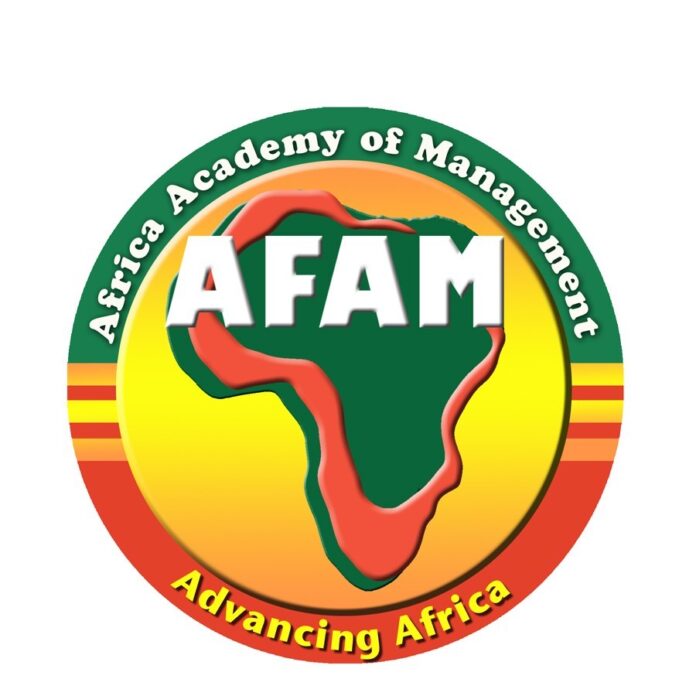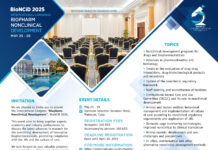8th Biennial Conference of the Africa Academy of Management
Date: January 4th–7th, 2026
Venue: ESCA École de Management, Casablanca, Morocco
Conference Theme
“The Art of Collaboration: Addressing Grand Challenges in Africa Through Research, Education, Practice, and Policy-Making”
In an era defined by rapid technological advancements and complex socio-economic transformations, organizations across Africa face critical challenges that influence sustainable development, economic inclusion, and social progress. The theme of the 8th Biennial Conference of the Africa Academy of Management (AFAM) explores the role of interdisciplinary collaboration in tackling these grand challenges and fostering dignity, justice, and prosperity in African societies. The event will serve as a forum for scholars, practitioners, policymakers, and industry leaders to engage in meaningful discussions on how management research can contribute to Africa’s evolving economic and social landscapes.
Addressing Africa’s Grand Challenges Through Research and Collaboration
Grand challenges, by their nature, require innovative and multifaceted solutions. In the African context, these challenges encompass poverty eradication, digital transformation, ecological sustainability, entrepreneurship, public health, and educational reforms. The AFAM 2026 Biennial Conference will provide a platform for interdisciplinary dialogue, bridging the gap between academia and industry while promoting localized, context-sensitive strategies to address these issues effectively.
Key focus areas include
- Inclusive Business Models for Sustainable Development: Exploring frameworks that integrate economic growth with social impact, ensuring long-term sustainability and inclusive participation in Africa’s development.
- Entrepreneurship and Youth Empowerment: Addressing the skills gap and fostering a culture of innovation among Africa’s youth to build a competitive future workforce.
- Leadership Philosophies and Indigenous Management Practices: Investigating how traditional African leadership models and indigenous knowledge can inform contemporary management theories and practices.
- Digital Innovations and Technology Adoption: Understanding the role of digitalization in African markets, including e-commerce, fintech, and AI-driven solutions for business growth.
- Policy Frameworks for Economic Integration: Evaluating strategies for enhancing intra-African trade, economic collaboration, and cross-border investments within the African Continental Free Trade Area (AfCFTA).
- Climate Resilience and Sustainable Business Practices: Examining corporate strategies to address climate change, environmental sustainability, and green entrepreneurship.
- Ethical Business Practices and Governance: Combating corruption, ensuring transparency, and fostering ethical leadership in African enterprises.
- Transforming Business Education: Identifying effective pedagogical approaches for equipping future business leaders with relevant skills and global perspectives.
- Informal Economies and Urban-Rural Development: Analyzing the economic contributions of informal businesses and their role in sustainable urbanization and rural development.
- Gender Equality and Women’s Empowerment: Promoting the inclusion of women entrepreneurs in leadership roles and business ecosystems.
- Spirituality and Religion in African Organizations: Examining how cultural and religious values influence organizational behavior, leadership, and ethics.
- Healthcare Innovation and Collaborative Models: Addressing systemic healthcare challenges through technological innovation, policy reforms, and public-private partnerships.
- Financing Innovation and Access to Capital: Exploring investment models, venture capital trends, and financial inclusion strategies to support African startups and SMEs.
- Natural Resources and Geopolitics: Understanding Africa’s resource economy, geopolitical implications, and sustainable resource management.
- Decolonization of Higher Education: Critically evaluating efforts to decolonize African universities and redefine knowledge production for local relevance.
- Context-Specific Research Methodologies: Advocating for the development of research methodologies tailored to African socio-economic and cultural contexts.
Conference Proceedings and Best Paper Awards
Accepted papers presented at the conference will be published in the official conference proceedings. Outstanding research contributions will be recognized through Best Paper Awards for each thematic track. Winning papers will receive certificates of excellence and will be highlighted in the conference program. Additionally, top papers will be considered for publication in the Africa Journal of Management (AJOM), subject to a rigorous peer-review process. More details on submission guidelines can be found at the AJOM website: http://www.tandfonline.com/toc/rajm20/current.
About the Host Institution: ESCA École de Management
Established in 1992, ESCA École de Management has been at the forefront of business education in Africa, consistently integrating global best practices in its curricula. In 2017, it became the first private management school in Morocco to receive official state recognition, and in 2018, it earned AACSB accreditation—becoming the first business school in Francophone Africa to achieve this distinction.
Located in Casablanca’s financial hub, the ESCA Next-Generation Campus fosters an international learning environment, hosting students from over 30 countries. With partnerships spanning 121 institutions worldwide, ESCA provides students with international exposure through academic exchanges, global networking opportunities, and collaborative research initiatives.
ESCA offers a diverse range of programs, including
- Undergraduate Degrees: Professional Bachelor’s Degree, Bachelor’s in Business Management.
- Postgraduate Programs: Executive Master’s, MBA, and Specialized Master’s programs designed to develop high-caliber professionals equipped for leadership roles in various industries.
As the leading business school in Morocco and Francophone Africa, ESCA ranked 3rd in Africa in the 2023 Eduniversal rankings, reaffirming its status as a top-tier institution dedicated to excellence in business education and research.
Join the Conversation at AFAM 2026
The AFAM 8th Biennial Conference presents a unique opportunity for scholars, business leaders, policymakers, and practitioners to exchange ideas, establish collaborations, and contribute to shaping the future of management in Africa. By fostering interdisciplinary dialogue and promoting research-driven solutions, the conference aims to address pressing challenges while advancing Africa’s economic and social transformation in the digital age.
For more information, paper submissions, and registration details, visit the official AFAM website.
















 The African Research (AR) Index is a comprehensive scholarly directory and database focused explicitly on journal publishers that publish and disseminate African research.
The African Research (AR) Index is a comprehensive scholarly directory and database focused explicitly on journal publishers that publish and disseminate African research.

